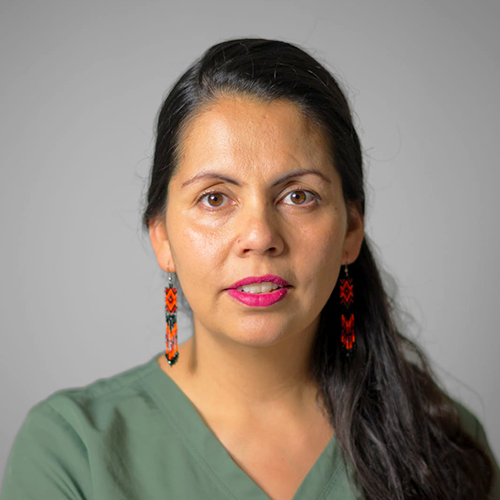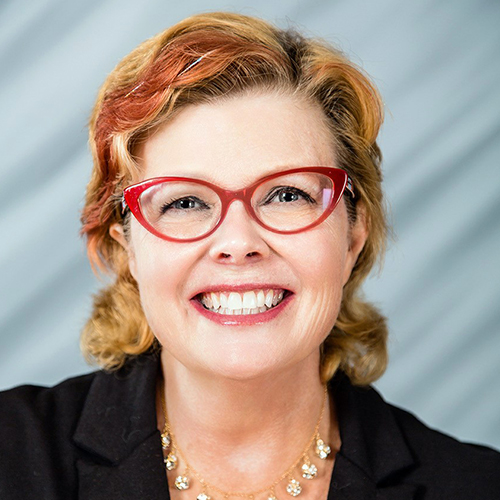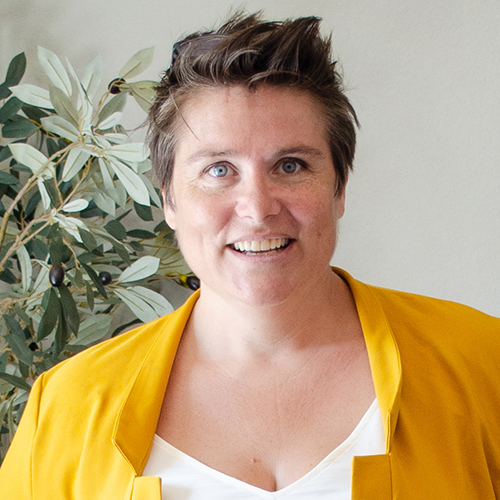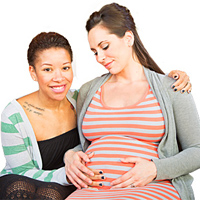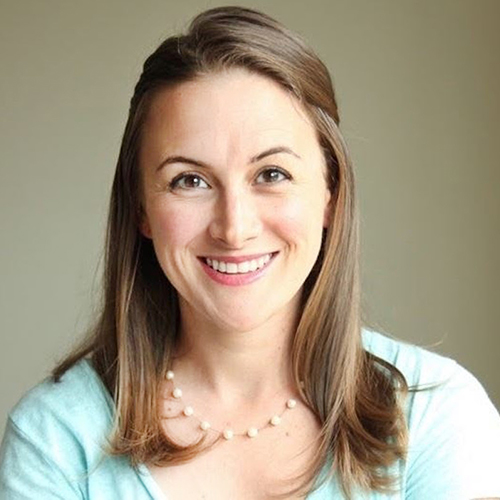 Midwifery Online Course(s) & Continuing Education
Midwifery Online Course(s) & Continuing Education
Access the latest clinical skills and research for Midwifery for Perinatal Mental Health professional training. These Midwifery online courses provide practice-changing skills and valuable perspectives from leading global experts. This Midwifery education has been accredited for a variety of CEUs / CERPs and can be accessed on-demand, at your own pace.
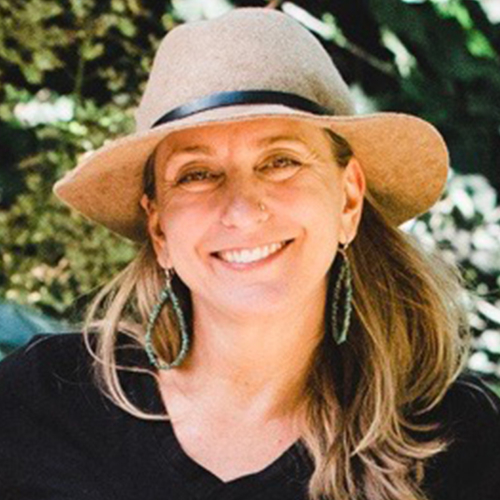

Dr. Britta Bushnell (she/her) is author of Transformed by Birth, host of the podcast Transformed, veteran childbirth educator, celebrated speaker, mythologist, wife and mother, and specialist in childbirth, relationship, and parenting. For over 20 years, Dr. Bushnell has worked with individuals and couples as they prepare for the life-changing experience of giving birth. Her work with parents has been enriched by her doctoral work in mythology and psychology, her years spent as a co-owner of Birthing From Within, as well as her dedicated study of solution-focused brief therapy, storytelling, and skills for supporting intimate relationships while parenting.
Britta is an engaging teacher, speaker, and presenter. Whether addressing a room of expectant parents, new mothers, or seasoned birth professionals, Britta has a way of captivating and inspiring them all. She has presented at conferences such as DONA International, MANA, ICEA, and Lamaze. Additionally, Britta has been featured on several popular podcasts including Informed Pregnancy, Birthful, and Atomic Moms. In 2016, in recognition of her transformative childbirth classes, Britta was awarded "Educator of the Year" by the Southern California Doula Association (DASC).
Topic: Awakening the Parent: Are You Supporting or Sabotaging Your Client’s Transformation? - [View Abstract]
Beneath the surface of every labor and delivery room interaction between physicians, nurses, and patients (as well as their partners) vibrate the pressures of power. Who is in charge? Regardless of the stated beliefs or legal truth about who IS in charge, the dance between the characters in the labor room often plays out archetypally. Archetypes are a recurrent symbol or motif found in literature, art, or mythology that live within the unconscious influencing how individuals behave, think, and feel. While many archetypal energies are possible during labor, the dominant archetypal energies active in a labor room tend to vacillate between that of Caretaker, Orphan, Ruler, Hero, Innocent, and Warrior. Nurses, often drawn to the career to help others, connect with the Caretaker archetype. However, due in part to hierarchical structures within the hospital setting, nurses can be left feeling unseen, undervalued, or powerless activating the Orphan archetype. Comparable patterns can be observed in obstetricians with the Ruler and Hero and in parents with the Innocent and Warrior archetypes. Without consciousness of the power dynamics between these archetypal energies, satisfaction in both the process and outcome is often fleeting for parents and can lead to burnout in professionals. Greater understanding of the needs of each activated archetype provides individuals needed guidance in how to better navigate labor room power dynamics and why doing so matters profoundly.
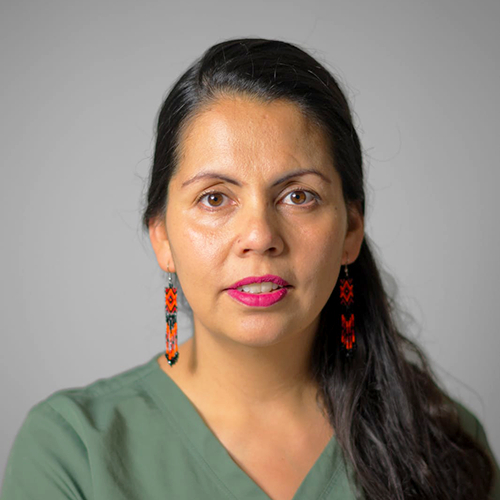
Birth at the Border: A Case Study of Refugees and Migrants at the Tijuana-San Diego Border

CNM Ximena Rojas Garcia is a Midwife and licensed Obstetric Nurse from the National Autonomous University of Mexico, she comes from a line of traditional midwives. Ximena has 15 years of experience in her field and as a Midwifery Professor, she has certifications in Obstetrical Emergencies, Neonatal Resuscitation, Water birthing and Acupuncture. Ximena founded "Partería y Medicinas Ancestrales," the only Mexican Midwifery NGO that includes Midwives from all paths and programs, which was instrumental in providing maternal health access during the humanitarian crisis after the arrival of thousands of asylum seekers from Haiti, Congo and Central America to the US-Mexico border.
Ximena has been collaborating with Stanford University's Obstetricians, Gynecologists and Pediatricians to train Midwives and Health providers at the US San Diego-Tijuana border to improve birth outcomes. She organizes direct relief to support trauma recovery responding to crises and disasters as a member of Acupuncturists Without Borders. Ximena also created a Doula training program, responsible for training more than 300 Doulas in Mexico, Colombia and Guatemala, aimed at eradicating obstetric violence, lowering the frequency of unnecessary c-sections, and decreasing maternal and newborn mortality.
Ximena is one of the founders and co-directors of Refugee Health Alliance and currently practices clinically at Justicia en Salud RHA Sexual & reproductive health free clinic. She established the first free birth center in Baja California, Mexico that serves vulnerable populations including displaced migrants, asylum seekers, deportees, sexual assault survivors, black, brown and indigenous families who historically had faced forced sterilizations, higher maternal death and newborn death. Her philosophy of birth is: Birth is a unique experience like a ceremony that heals trauma and the next generations when we hold space for it to happen.
Over the past years, Tijuana, Mexico, has seen an influx of U.S.-bound refugees and migrants, many of whom have escaped incredibly difficult situations in their country of origin. With no or little access to healthcare, pregnant women and girls are often most vulnerable.
Parteras Fronterizas / Borderland Midwives caters to the unique needs of this underserved patient population by utilizing a holistic approach that combines midwifery, traditional and Western medical practices.
This presentation explores the unique challenges pregnant migrants and refugees face at the US/Mexico border.
It highlights the importance of the midwifery model of care and dives into how midwives and healthcare providers can provide compassionate, trauma informed and comprehensive care despite difficult and limiting circumstances. The presentation will also discuss global health and midwifery skills that can help dismantle health disparities.
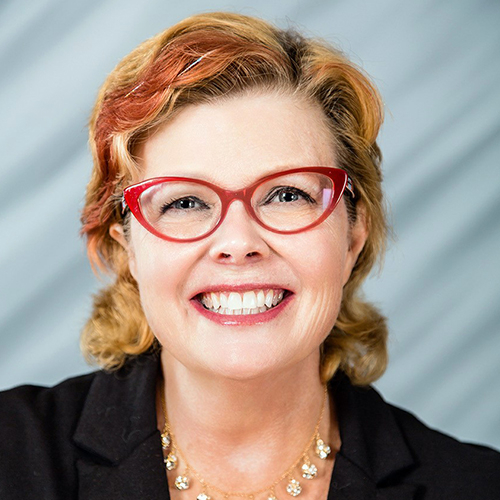
Burnout, Compassion Fatigue and Self-Care for Members of the Perinatal Team

Kathleen Kendall-Tackett is a health psychologist and International Board Certified Lactation Consultant, and the Owner and Editor-in-Chief of Praeclarus Press, a small press specializing in women's health. Dr. Kendall-Tackett is Editor-in-Chief of two peer-reviewed journals: Clinical Lactation and Psychological Trauma. She is Fellow of the American Psychological Association in Health and Trauma Psychology and Past President of the APA Division of Trauma Psychology. Dr. Kendall-Tackett specializes in women's-health research including breastfeeding, depression, trauma, and health psychology, and has won many awards for her work including the 2017 President’s Award for Outstanding Service to the Field of Trauma Psychology from the American Psychological Association’s Division of Trauma Psychology. Dr. Kendall-Tackett has authored more than 460 articles or chapters and is author or editor of 38 books.
Topic: Breastfeeding Helps Mothers Overcome the Legacy of Abuse and Adversity: It Makes All the Difference - [View Abstract]
Topic: Burnout, Compassion Fatigue and Self-Care for Members of the Perinatal Team - [View Abstract]
Topic: Burnout, Secondary Trauma, and Moral Injury in Perinatal Care Providers - [View Abstract]
Topic: Does Breastfeeding Protect Maternal Mental Health? The Role of Oxytocin and Stress - [View Abstract]
Topic: Interplay of Oxytocin and Stress Systems: Impact on Breastfeeding and Mental Health - [View Abstract]
Topic: Lessons to Learn from Fed Is Best: How Can We Improve Our Care? - [View Abstract]
Topic: Mother-Infant Sleep Location: It's Not as Simple as it Seems - [View Abstract]
Topic: Trauma and Breastfeeding: Working Effectively with Trauma Survivors - [View Abstract]
Topic: What’s New in Postpartum Depression? A Summary of Current Findings - [View Abstract]
Working in perinatal care can be deeply rewarding. It can also lead to job-related burnout and secondary traumatic stress. Secondary traumatic stress, or compassion fatigue, can occur when witnessing traumatic events in the workplace. This can occur when witnessing infant death or traumatic births, or when there is too much work, or work that doesn’t seem to make a difference, and little institutional support. A recent survey by AWHONN of 464 Labor & Delivery nurses found that more than a third reported moderate-to-severe symptoms of traumatic stress as a result of incidents they encountered on the job. This has serious implications for both patients and providers. Burnout and Compassion fatigue/secondary traumatic stress can lead to physical and mental health sequelae for professionals who experience them. It can also have a negative impact on the care provided. Self-care is essential for being able to provide care to others. In this seminar, participants will learn about the causes and consequences of both burnout and secondary traumatic stress/compassion fatigue. The good news is that there is hope for recovery. Participants will learn some specific strategies for integrating self-care into their care for others.

View Details / Enroll

Burnout, Secondary Trauma, and Moral Injury in Perinatal Care Providers

Kathleen Kendall-Tackett is a health psychologist and International Board Certified Lactation Consultant, and the Owner and Editor-in-Chief of Praeclarus Press, a small press specializing in women's health. Dr. Kendall-Tackett is Editor-in-Chief of two peer-reviewed journals: Clinical Lactation and Psychological Trauma. She is Fellow of the American Psychological Association in Health and Trauma Psychology and Past President of the APA Division of Trauma Psychology. Dr. Kendall-Tackett specializes in women's-health research including breastfeeding, depression, trauma, and health psychology, and has won many awards for her work including the 2017 President’s Award for Outstanding Service to the Field of Trauma Psychology from the American Psychological Association’s Division of Trauma Psychology. Dr. Kendall-Tackett has authored more than 460 articles or chapters and is author or editor of 38 books.
Topic: Breastfeeding Helps Mothers Overcome the Legacy of Abuse and Adversity: It Makes All the Difference - [View Abstract]
Topic: Burnout, Compassion Fatigue and Self-Care for Members of the Perinatal Team - [View Abstract]
Topic: Burnout, Secondary Trauma, and Moral Injury in Perinatal Care Providers - [View Abstract]
Topic: Does Breastfeeding Protect Maternal Mental Health? The Role of Oxytocin and Stress - [View Abstract]
Topic: Interplay of Oxytocin and Stress Systems: Impact on Breastfeeding and Mental Health - [View Abstract]
Topic: Lessons to Learn from Fed Is Best: How Can We Improve Our Care? - [View Abstract]
Topic: Mother-Infant Sleep Location: It's Not as Simple as it Seems - [View Abstract]
Topic: Trauma and Breastfeeding: Working Effectively with Trauma Survivors - [View Abstract]
Topic: What’s New in Postpartum Depression? A Summary of Current Findings - [View Abstract]
Working in perinatal care can be deeply rewarding. It can also lead to job-related burnout, secondary traumatic stress, and moral injury. Secondary traumatic stress (compassion fatigue), or moral injury, can occur when witnessing traumatic events in the workplace. This can occur when witnessing infant death or traumatic births, or when there is too much work, or work that doesn’t seem to make a difference, and little institutional support. Unfortunately, this is remarkably common among caregivers for perinatal women. Burnout, compassion fatigue, and moral injury can lead to physical and mental health sequelae for care providers and have a negative effect on the care they provider. Self-care is essential for being able to provide care to others. In this presentation, participants will learn about the causes and consequences of burnout, compassion fatigue, and moral injury. Fortunately, there is hope for recovery. Participants will learn some specific strategies for integrating self-care into their care for others.

View Details / Enroll
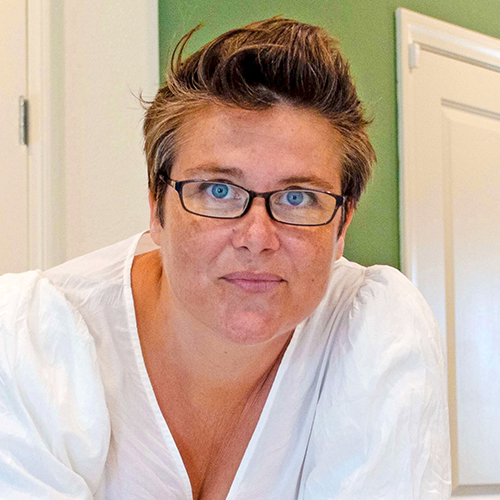

Augustine is an internationally recognized midwifery educator, experienced business executive, and veteran midwife with a heart focused on the underserved, marginalized, and under-resourced. She respects the importance of being empowered and undisturbed during labor, and balances this attention to the sacred with 20+ years experience attending births in hospitals, birth centers, and homes in rural, urban and suburban environments in the US and abroad. Augustine’s focus is finely attuned to the process of letting go and opening to the unknown in labor and in life. Additionally, Augustine has a master’s degree from Bastyr University in Seattle, WA where she majored in Maternal/Child Health Systems.
Her life's mission is to mainstream midwifery and deconstruct the culture of fear and misinformation that surrounds the maternity world globally. To that end, Augustine 'midwife's the midwife' through her many education programs, consulting services, product development, podcasts and video production, business site visits, and with private coaching services for midwives, students, maternity practice owners, & birth center administrators through her consulting firm, The Midwifery Wisdom Collective. It is her profound honor to illuminate the sacred path to joyful and sustainable midwifery practice. She lives and works in India.
Topic: Ironing Out the Details: The Hidden Crisis of Iron Deficiency During Pregnancy - [View Abstract]
The rapid development and attempts at standardization and professionalization of the modern version of midwifery in the U.S. has created debate and tension about what, exactly, should be contained within the internationally recommended 3-year midwife training. Competencies in clinical judgment, intuition, multi-tasking, delegating, and other higher-order professional skills, hallmarks of modern midwifery, take longer to develop than just technical excellence. Midwives in my parts of the world are targeted during and after providing care by the dominate for-profit medical model. However, despite all this, charting defensively is not an integral part of midwifery training across the globe, most charting is not standardized therefore putting midwives at risk. Thus, increasing malpractice costs, and decreasing access to midwives is the result. Not having a context for charting, makes midwives vulnerable to litigation. Not good for the midwife, not good for the community. This presentation about defensive charting aims to bridge the gap by starting a conversation around honing critical thinking pathways, sharpening charting skills and debunking charting myths, optimizing charting habits, shared decision-making and tips to protect yourself during and after poor outcomes. Access the tools to close existing gaps in charting, acknowledge cultural incompetency, political reality, and design in-office systems of strength and confidence for the future.

View Details / Enroll
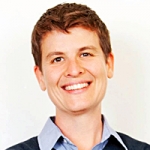

Kristin Kali, LM CPM is a midwife, teacher, writer, speaker, trainer and consultant specializing in LGBTQ family building and gender inclusivity. Kristin is a warm and engaging presence, delivering professionalism and expertise with a down-to-earth, personable style. Kristin is an authoritative resource on LGBTQ healthcare during conception and pregnancy, functional approaches to fertility, and midwifery model preconception care.
Kristin is the owner of MAIA Midwifery and Fertility Services, internationally renowned for LGBTQ family building expertise. In addition to providing preconception care via telemedicine to families across the globe, Kristin provides midwifery care, home insemination, classes and support groups in Seattle, WA. You can read more about MAIA services, download webinars, access professional training, and purchase fertility related products at MAIA Midwifery & Fertility.
Topic: Providing Preconception and Prenatal Care For lgbtq2s Families - [View Abstract]
Childbirth educators are often challenged to find ways to meet the needs of LGBTQ families in the classroom. This presentation offers an in-depth understanding of what is required to truly hold space for LGBTQ families. Concepts of sexual orientation and gender identity are explained in relation to the transformative experience of becoming a parent. A detailed outline is provided for protecting LGBTQ families against marginalization in the classroom, from advertising and communication with class participants to course materials and the physical classroom space. An exploration of gender inclusive language is included, so that childbirth educators can uniformly discuss pregnancy, birth and infant feeding in ways that are inclusive of new parents of all genders, orientations and family structures. For those who wish to teach specialized classes for LGBTQ families, additional aspects that arise in an exclusive space will be presented.
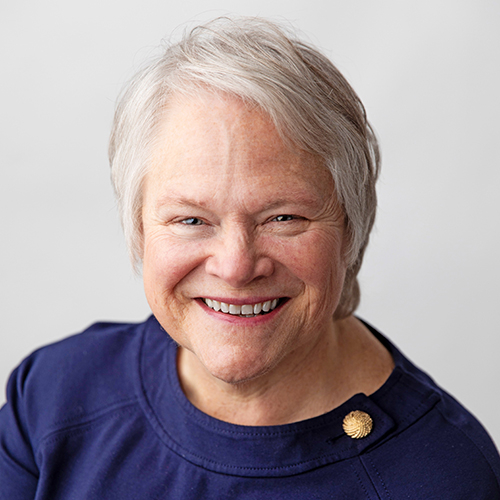
Midwifing the Midwife: Key Elements to Scaling Up and Sustaining our Workforce

Dr. Breedlove is a past president of the American College of Nurse-Midwives. In 2017 she formed a consulting company, Grow Midwives LLC, to educate Physicians and Hospitals and support Midwives in the design and scaling of best practices in collaborative care models. Prior to consulting she was on faculty 17 years as Professor of Nursing and Midwifery at Shenandoah University and University of Kansas School of Nursing. She co-founded the first free-standing birthing center in Topeka, Kansas in 1979, the first Midwife service in Kansas City, Missouri in 1994, and established the University of KS Midwifery program in 1999. In 2016 she co-founded March for Moms with Dr. Neel Shah and has served as President three years. March for Moms is a new non-profit organization working to align and coordinate the efforts of families, healthcare providers, policymakers and other partners acting to achieve the best possible health and well-being of all mothers. In 2019 over 40 stakeholders joined for the third national rally on the Washington DC Mall. In 2018 Dr. Breedlove edited and launched a book for first-time parents navigating the first six weeks of pregnancy titled, Nobody Told Me About That!
Topic: Postpartum Pause: Identifying Gaps In Preparedness for Parenting - [View Abstract]
Barriers to accessible, affordable and respectful midwifery practice exist in every country. These barriers inevitably reduce the ability for midwives to provide their full scope of care and can impact the scaling up or sustainability of the workforce. Barriers range from pay inequity to lack of recognition, to regulatory practice barriers and poor reimbursement for services. Regardless of the contributing barrier, there are fundamental steps that can be strategically planned to advance change. Although midwives may lead the call for change, purposeful planning is the focus of this presentation. Have you documented a current, compelling story about why – what is the issue and why is it important? What barriers are the most pressing, and, what can you bring forward as a proposed solution? Who are your supporters on the side that perhaps should be promoted as front and center advocates? Do you know how to organize an effective public advocacy movement? Are you skilled in the art of negotiation – getting everyone to YES? This presentation aims to guide midwives to critically evaluate the process of self-preparedness in order to scale up and sustain the profession. Information to "midwife the midwife" beyond clinical expertise toward a voice and champion for change.
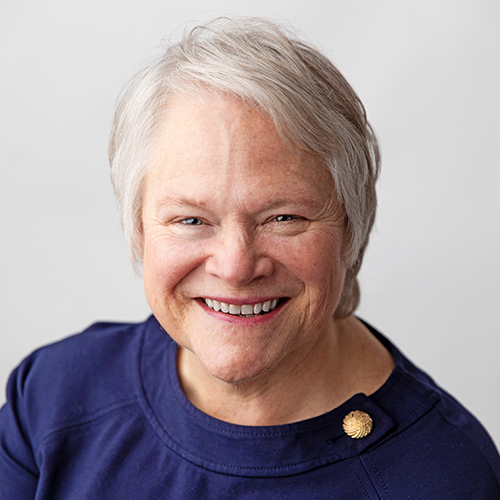
View Details / Enroll
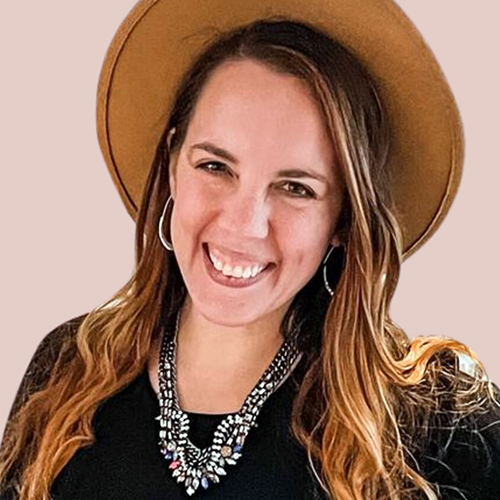
Not Handmaiden or Hero: The Impact of Nursing Identity on Nurse-Patient Relationship and Care

Maggie is a nurse, educator, and writer.
She began her nursing career in 2009 and has since practiced in hospitals and communities nationwide, primarily in labor and birth environments. Maggie maintains a bedside practice at a community hospital in Pennsylvania, in addition to her non-profit work as Founding Executive Director of Your BIRTH Partners.
Maggie is currently pursuing her PhD in Nursing and loves educating, mentoring, and learning alongside other nurses. Her research interests are trauma-informed care, secondary traumatic stress, trauma-responsive work environments, and nurse identity. She has always enjoyed writing, both through blogs and in scholarly environments. Much of her recent pursuits have focused on authoring a transformational memoir and contributing to academic journals.
Her advocacy focuses on improving perinatal care in hospital environments through trauma-informed care and community collaboration. When she's not dreaming up good trouble with other changemakers, she's doing yoga, reading a book, traveling, indulging in delicious food, soaking in fresh air outside, or hanging with her awesome partner and kids.
The role of nurses has often been dictated by those outside the profession. First, we were seen as doctors' handmaidens, which informed a collective consciousness that we were only valuable in support of paternalistic healthcare. As the role of nurses expanded, the public came to recognize our unique skills, identified us as the most trustworthy profession over two decades, and labeled us heroes. In response, we have positioned ourselves as a neutral identity that is "just there to help." However, this helper or savior identity has several negative ramifications including a preoccupation with how our care might be judged in the event of an unexpected outcome, which ultimately creates a divide between us & those in our care. Nurses benefit from identification of and reflection on their motivation for pursuing nursing, their current care practices, and how they can shift their mindset to release the rigidity, guilt, and fear that is associated with saviorism. We cannot allow patterns of saviorism to continue to dominate our profession. The health of our patients & ourselves depends on us stepping away from "helping" and into a standard of trauma-informed advocacy.
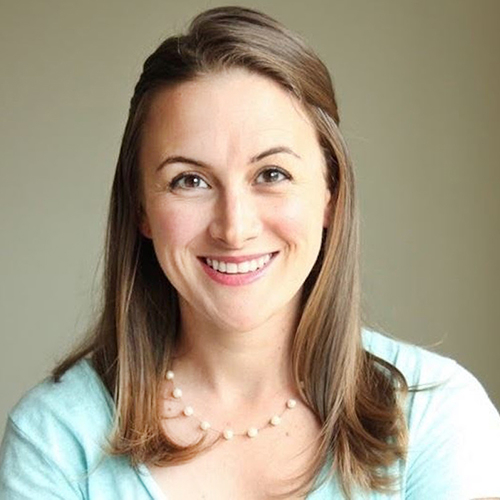

Cristen Pascucci is an advocate for human rights in childbirth. She is the founder of Birth Monopoly and working on a documentary film exposing the epidemic of obstetric violence and the state-sanctioned suppression of midwifery in the U.S. With a background in public affairs, Cristen has led multiple consumer-based advocacy campaigns to get birth trauma and institutional mistreatment in maternity care into the media. Today she teaches birth and healthcare workers about their patients' human rights.
In this session, we'll explore a deeper understanding of what obstetric violence is and the many ways it manifests to undermine and harm birthing people—as well as puts their caregivers and support teams in compromising positions. We'll discuss how birth professionals can avoid committing or contributing to obstetric violence themselves and how they can help make trauma informed care--including self-healing--the industry standard.

View Details / Enroll
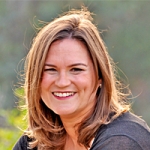
The Ethics & Realities of Forced Cesarean Surgery

Jen Kamel is a VBAC strategist, national speaker, and founder of VBAC Facts®. VBAC Facts was born out of her own frustration as a cesarean parent attempting to understand the medical literature and political barriers surrounding VBAC. Her mission is to increase VBAC access through educational programs, legislative action, and amplifying the consumer voice. She envisions a time when every pregnant person seeking VBAC has access to unbiased information, respectful providers, and community support so they can plan the joyful birth of their choosing in the setting they desire. She travels the country presenting her signature program, “The Truth About VBAC” and speaking at various regional and national conferences, including Human Rights in Childbirth, DONA International, and the Indiana Midwives Association. She has testified multiple times in front of the California Medical Board on the importance of VBAC access and is a board member for the California Association of Midwives.
Are women forced into cesarean surgery? How is this possible? When does it happen? Why does it occur? And what do forced/coerced cesareans really look like? This session will explore the extreme disconnect between medical evidence, national guidelines, ethical responsibilities and the current maternity care system. We will focus on the role of hospital “VBAC bans” which restrict access to vaginal birth after cesarean and mandate repeat cesarean as well as the public health fallout of such policies. We will review how forced cesareans can occur in the face of national guidelines that denounce them while professional ethics simultaneously affirm and honor the autonomy of the pregnant person. Finally we will close with how we can turn the tide, create change, and improve the care our clients and children will ultimately receive.




